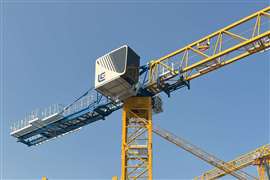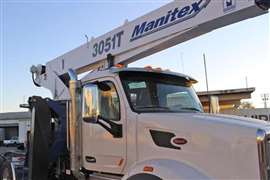Will the Green Deal aggravate the housing crisis?
30 October 2023
The European Commission’s sustainable growth strategy, the European Green Deal, is nearing completion.
 Photo: Adobe Stock
Photo: Adobe Stock
Most of the proposals have now been adopted by the EU legislator and will soon have to be implemented and applied by Member States at a time of a spreading housing crisis and already high costs for construction and building renovations in Europe.
In a recent press release, FIEC therefore calls on EU institutions to refrain from proposing new “green” legislation and to thoroughly analyse all potential implications of the Green Deal for new housebuilding.
Implementing the Green Deal comes on top of already difficult economic context
Under the Green Deal, the present European Commission has so far introduced far-reaching new legislation for buildings and construction, from carbon pricing and the use of renewable energy to energy efficiency and circular economy.
This legislation will soon have to be transposed into national law by the 27 Member States, which FIEC expects will lead to rising construction costs in the short to medium term and pose new challenges for construction companies.
Many have just recovered from the repercussions of the Covid pandemic and are still feeling its after-effects on material and energy prices.
The implementation of President Von der Leyen’s flagship initiative now comes on top of a new unfavourable economic context, sparked by geopolitical tensions and marked by inflation, high interest rates, high mortgage loan prices and a strong decrease in the number of building permits.
Housing Europe, the European Federation of Public, Cooperative and Social Housing, says in its “State of Housing in Europe 2023” report that these elements combined “are causing many projects to be postponed or delayed if not altogether dropped”.
It is no surprise that FIEC foresees that investment in construction will fall by 2.5% in the EU in 2023.
Many EU countries are struggling with a housing crisis
Germany and France, the EU’s economic powerhouses, are being hit particularly hard by a housing crisis. In Germany, the projected housing shortage is expected to reach 700,000 by 2025, corresponding to a 32% decline in completed dwellings.
It is the worst housing crisis the country has seen in 20 years, with the decline in completed dwellings only expected to be sharper in the Scandinavian countries Sweden (-39%) and Denmark (-33%), according to figures by Germany’s ifo Institute.
On the other side of the river Rhine, the situation is not much better. Housebuilding in France has dropped to levels not seen since 2010.
While past and present housing policies have certainly failed to anticipate the societal changes for far too long, which has led one of the country’s best-selling newspapers, Le Monde, to accuse the government of “procrastination”, experts say that the slowdown in the housing market is mainly due a significant decrease in the issuance of new building permits, high costs for building materials and tougher national environmental regulations.
The costs of construction and renovation deserve more attention
The application of the ‘RE 2020’ scheme in France, which introduced new maximum values for CO2 emissions and energy consumption, increased construction costs on its own by 3.4 % for single-family houses, 4,2% for multi-apartment houses and 2,7% for public buildings, a 2021 French government study found.
The costs associated with the European Green Deal are not even included in that calculation, and more ambitious environmental legislation on energy performance, protecting biodiversity and monitoring soil is expected to be adopted before the EU elections in June 2024.
Against this challenging background, FIEC considers it of great importance to shift from proposing new “green” legislation towards implementing the Green Deal and to thoroughly analyse all potential impacts of the Green Deal on new housebuilding, while reducing bureaucracy and paying particular attention to the costs of construction and renovation.




